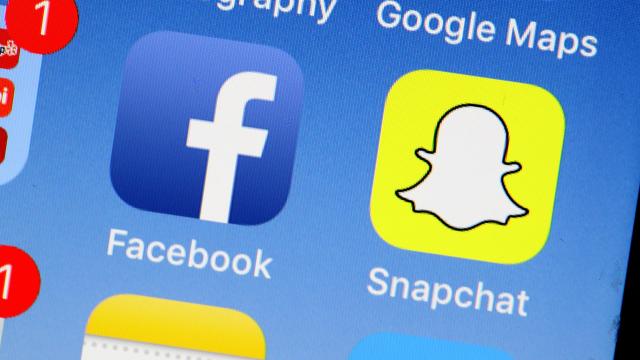That technology might be bad for our health, that it’s manipulating us, isn’t a revelatory take, but it’s one that U.S. lawmakers are increasingly becoming intimately entwined with. A new bill introduced to U.S. parliament wants to prevent social networks from exploiting users.
U.S. Senator Josh Hawley introduced the Social Media Addiction Reduction Technology Act, or SMART Act, on Tuesday, and according to the bill, would “prohibit social media companies from using practices that exploit human psychology or brain physiology to substantially impede freedom of choice, to require social media companies to take measures to mitigate the risks of internet addiction and psychological exploitation, and for other purposes.”
The bill lists a number of common design features that would be banned from social networks, including infinite scroll, awards that don’t provide benefits beyond rewarding a user for engaging with the service, and autoplaying or loading additional content that isn’t a function of the service or something explicitly consented to by the user. It also states that icons to accept or decline certain agreements should be identical in size, shape, font, and other visual or auditory design.
Infinite scroll, badges, and autoplay are seemingly linchpins for many of the social networks we’ve come to know and love (or, as ethical technologists argue, get hooked on). This bill would effectively strip the platforms of these addictive design practices and instant (but empty) gratification features to minimise the believed psychological toll it’s taking on its users. Tristan Harris, the executive director of the Center for Humane Technology, detailed in painful metaphorical detail during a Senate hearing last month just how some of these platforms are controlling us.
“It starts with techniques like “˜pull to refresh’, so you pull to refresh your newsfeed,” Harris said during the hearing. “That operates like a slot machine. It has the same kind of addictive qualities that keep people in Las Vegas hooked. Other examples are removing stopping cues. So if I take the bottom out of this glass and I keep refilling the water or the wine, you won’t know when to stop drinking. That’s what happens with infinitely scrolling feeds.”
But the bill doesn’t stop at merely eradicating some manipulative user interface practices deployed by social media platforms. It also states that six months after the bill is enacted, it’s unlawful for these companies to not allow users to set time limits for themselves on the platforms and to not provide them with routine reports and pop-ups on how much time they’re spending on the platform across all of their devices.
Companies must also automatically limit the amount of time someone can spend on their platforms to just 30 minutes a day unless the user opts out or increases that time limit, and even if they do, it will reset each month.
While being able to voluntarily limit how much time you spend on certain platforms and to have more transparency around how much time you’re dedicating to them aren’t inherently bad things, and in fact, might be nice for some, to push time limits and force-feed engagement reports onto users is pretty aggressive.
To make it unlawful for companies to not create this type of relationship with their users goes beyond simply mitigating manipulative design. It’s controlling, especially to make it opt-out and not opt-in, and seemingly aims to guilt users into being less online rather than, as the bill purportedly intends, letting them choose that through their own free will.
It’s perhaps not entirely shocking, given the Republican Senator representing Missouri has an embarrassing resume when it comes to deeply misunderstanding how the internet functions. This misguided perception is evident in Hawley’s other recent legislation regarding social media platforms as well as his very public display of failing to understand a law related to internet speech.
That being said, stronger legislation that would prevent social networks from expertly preying on the psyche of their users around the world for the sake of money, baby! It would be a welcome change for those who care about enjoying the digital splendours without sacrificing their free will.
